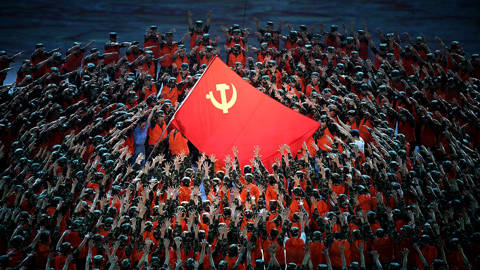The Communist Party of China at 100
The Communist Party of China, founded a century ago, has been in power for more than seven decades – and it has big plans for the future. What do those plans entail, and is the Party still strong enough to implement them?
Listen and subscribe to all episodes from your favorite podcast app. Find Opinion Has It on Apple Podcasts, Google Podcasts, Acast, or via RSS Feed. Have a suggestion for an episode? Email us at podcasts@project-syndicate.org.
Transcript
EB: Welcome to Opinion Has It. I’m Elmira Bayrasli.
The Communist Party of China just celebrated its centennial, and it was quite the affair.
Archive Recording: Our top story this hour, the Chinese Communist Party puts up a grand extravaganza as it celebrates its 100th founding anniversary.
Archive Recording: A 100th birthday marked with fanfare, military precision, and tens of thousands of adoring supporters.
Archive Recording: Seventy-thousand people gathering with precision-like performance, really sending this official message to not only the Chinese people, but to the world.
EB: The CCP has been in power for more than seven decades. And it has big plans for the future.
Archive Recording, President Xi Jinping: Today, 100 years on from its founding, the Communist Party of China is still in its prime and remains as determined as ever to achieve lasting richness for the Chinese nation.
